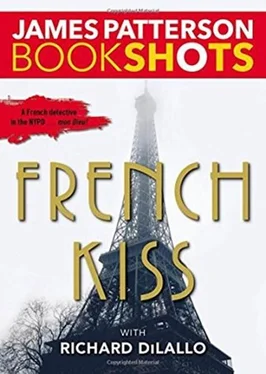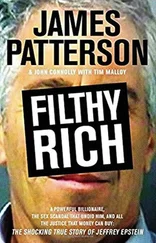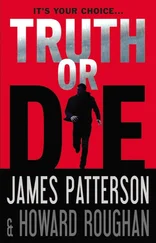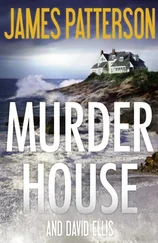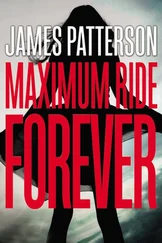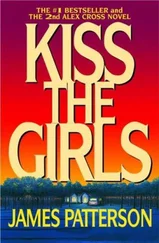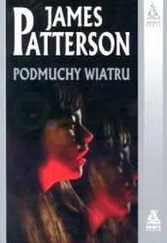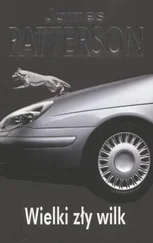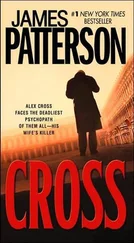James Patterson - French Kiss
Здесь есть возможность читать онлайн «James Patterson - French Kiss» весь текст электронной книги совершенно бесплатно (целиком полную версию без сокращений). В некоторых случаях можно слушать аудио, скачать через торрент в формате fb2 и присутствует краткое содержание. Жанр: Детектив, на английском языке. Описание произведения, (предисловие) а так же отзывы посетителей доступны на портале библиотеки ЛибКат.
- Название:French Kiss
- Автор:
- Жанр:
- Год:неизвестен
- ISBN:нет данных
- Рейтинг книги:5 / 5. Голосов: 1
-
Избранное:Добавить в избранное
- Отзывы:
-
Ваша оценка:
- 100
- 1
- 2
- 3
- 4
- 5
French Kiss: краткое содержание, описание и аннотация
Предлагаем к чтению аннотацию, описание, краткое содержание или предисловие (зависит от того, что написал сам автор книги «French Kiss»). Если вы не нашли необходимую информацию о книге — напишите в комментариях, мы постараемся отыскать её.
Very handsome and charming French detective Luc Moncrief joined the NYPD for a fresh start – but someone wants to make his first big case his last. Welcome to New York.
BookShots
Lightning-fast stories by James Patterson
Novels you can devour in a few hours
Impossible to stop listening
All original content from James Patterson
French Kiss — читать онлайн бесплатно полную книгу (весь текст) целиком
Ниже представлен текст книги, разбитый по страницам. Система сохранения места последней прочитанной страницы, позволяет с удобством читать онлайн бесплатно книгу «French Kiss», без необходимости каждый раз заново искать на чём Вы остановились. Поставьте закладку, и сможете в любой момент перейти на страницу, на которой закончили чтение.
Интервал:
Закладка:
“In that case,” K. Burke says, “these murders have to do with us. ”
Chapter 31
“What the hell is the story with these two murders?”
This question keeps exploding off the walls of NYPD precincts. It is the commissioner’s question. It is Nick Elliott’s question. And-obsessively, interminably, awake or asleep-it is my question.
The question is asked a thousand times, and a thousand times the answer comes back the same.
“No idea. Just no goddamn idea.”
Forensics brought in nothing. Surveillance cameras showed us nothing. Interviews at the scene turned up nothing.
So it is now time for me to do the only thing left to do: turn inward and rely entirely on my instincts. They have helped me in the past, and they have failed me, too. But instinct is all I have left.
I confront Nick Elliott. I tell him that the answer to the murders is obviously not in New York. The answer must be in Paris.
“Paris?” he shouts.
Then I say, “I need to go to Paris-look around, nose around, see if I can find something there.”
Nick Elliott gives it a long pause and then says, “Maybe that’s not a bad idea.”
Then I tell him that I want to take K. Burke with me.
He pauses again, another long pause. Then he speaks. “Now, that’s a bad idea.”
“Inspector, this is no holiday I’m planning. This is work. K. Burke and I will be examining cases that-”
“Okay, okay, let me think about it,” Elliott says. “Maybe it’ll help. On the other hand, it might end up being a waste of time and money.”
I think quickly and say, “Then it will be a waste of my time and my money. I’ll supply the money for the trip. I only care about getting to the bottom of these murders.”
“I guess so,” says Elliott.
I say, “I’ll take that as a yes.”
A minute later I am telling K. Burke to go home and pack.
Her reaction? “I’ve never been to Paris.”
My reaction? “Why am I not surprised?”
Chapter 32
K. Burke and I are sitting at a steel desk in a small room with bad Internet service at Les Archives de la Préfecture de Police, the dreary building on the periphery of Paris where all the old police records are kept. Here you can examine every recorded police case since the end of the Great War. Here you can discover the names of the French collaborators during the Vichy regime. You can examine the records of the Parisian bakers who have been accused of using tainted yeast in their bread. Here are the records of the thousands of murders, assaults, knife attacks, shootings, and traffic violations that have occurred in the past hundred years in the City of Light.
It is also here that K. Burke and I hope to find some small (or, better yet, large) clue that could connect us to whoever is responsible for the brutal deaths of Maria Martinez and my beloved Dalia.
To find the person who wishes to hurt me so deeply.
“Here,” says Detective Burke, pointing to my name on the screen of the archive’s computer. “L. Moncrief était responsable…”
I translate: “L. Moncrief was responsible for the evidence linking the Algerian diplomat to the cartel posing as Dominican priests in the 15th arrondissement.”
I press a computer key and say to Burke, “Listen: after years of being dragged to church by my mother, I know a real priest when I see one, and no prêtre I’d ever seen had such a well-groomed beard and mustache. Then I noticed that his shoes…eh, never mind. See what’s next.”
We study my other cases. Some of those I worked on are ridiculously small-a Citroën stolen because the owner left the keys in the ignition; a lost child who stopped for a free jus d’orange on his way home from school; a homeless man arrested for singing loudly in a public library.
Other cases are much more significant. Along with the phony Dominicans, there was the drug bust in Pigalle, the case I built my reputation on. But there was also a gruesome murder in Montmartre, on rue Caulaincourt, during which a pimp’s hands and feet were amputated.
In this last case my instincts led me to a pet cemetery in Asnières-sur-Seine. Both the severed hands and feet were found at the grave of the pimp’s childhood pet, a spaniel. Instinct.
But nothing in the police archive is resonating with me. I do not feel, either through logic or instinct, any link from these past cases and the awful deaths of my two beloved women.
“I think I need another café au lait, Moncrief,” K. Burke says. Her eyelids are covering half her eyes. Jet lag has definitely attacked her.
“What you need is a taxi back to Le Meurice,” I say. “It is now quatorze heures… ”
K. Burke looks confused.
I translate. “Two o’clock in the afternoon.”
“Gotcha,” she says.
“Go back to the hotel. Take a nap, and I will come knocking on your door at dix-sept heures. Forgive me. I will come knocking at five o’clock.”
I add, “Good-bye, K. Burke.”
“Au revoir,” she says. Her accent makes me cringe, then smile.
“You see?” I add. “You’re here just seven hours, and already you’re on your way to becoming a true Parisienne .”
Chapter 33
We meet at five.
“I am not a happy man,” I say to K. Burke after I give our destination to the cabdriver. Then I say, “Perhaps I will never be a completely happy man again, but I am un peu content when I am in Paris.” Burke says nothing for a few seconds.
“Perhaps someday you will be happi er. ” She speaks with an emphasis on the last syllable. Perhaps someday I will be.
Then I explain to her that because we will have to get back to our investigation tomorrow-“And, like many things, it might come to a frustrating end,” I caution-this early evening will be the only chance for me to show her the glory of Paris.
Then I quickly add, “But not the Eiffel Tower or the Louvre or Notre Dame. You can see those on your own. I will show you the special places in Paris. Places that are visited by only the very wise and the very curious.”
Detective Burke says, “Merci, Monsieur Moncrief. ”
I smile at her, and then I say to the cabdriver, “Nous sommes arrivés.” We are here.
Burke reads the sign on the building aloud. Her accent is amusingly American-sounding: “Museé…des…Arts…Forains?”
“It is the circus museum,” I say. And soon we are standing in a huge warehouse that holds the forty carousels and games and bright neon signs that a rich man thought were worth preserving.
“I can’t decide whether this is a dream or a nightmare,” Burke says.
“I think that it is both. ”
We ride a carousel that whirls amazingly fast. “I feel like I’m five again!” shouts K. Burke. We play a game that involves plaster puppets and cloth-covered bulls. K. Burke wins the game. Then we are out and on our way again.
This time out I tell our cabdriver to take us to Paris Descartes University.
“Vous êtes médecin?” the cabdriver asks.
I tell him that my companion and I are doctors of crime, which seems both to surprise and upset him. A few minutes later we are ascending in the lift to view the Musée d’Anatomie Delmas-Orfila-Rouvière. The place is almost crazier than the circus museum. It’s a medical museum with hundreds of shelves displaying skulls and skeletons and wax models of diseased human parts. It is at once astonishing and disgusting.
At one point Burke says, “We’re the only people here.”
“You need special permission to enter.”
Читать дальшеИнтервал:
Закладка:
Похожие книги на «French Kiss»
Представляем Вашему вниманию похожие книги на «French Kiss» списком для выбора. Мы отобрали схожую по названию и смыслу литературу в надежде предоставить читателям больше вариантов отыскать новые, интересные, ещё непрочитанные произведения.
Обсуждение, отзывы о книге «French Kiss» и просто собственные мнения читателей. Оставьте ваши комментарии, напишите, что Вы думаете о произведении, его смысле или главных героях. Укажите что конкретно понравилось, а что нет, и почему Вы так считаете.
